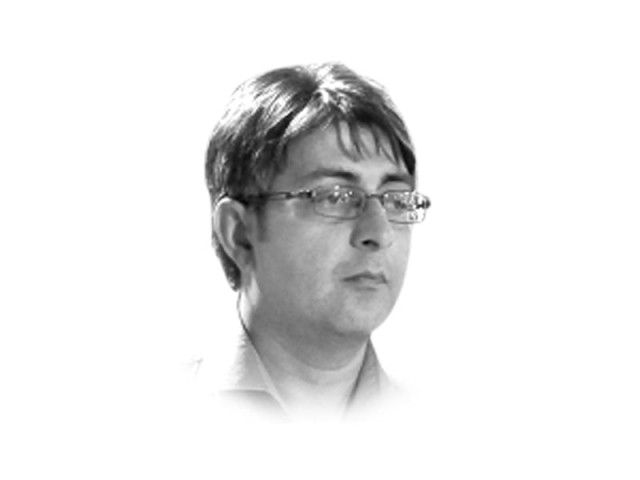Politics of hate
Hate generates heat in political system, which loosens up political atoms, and makes them manipulation prone

The writer is an Islamabad-based TV journalist and tweets @FarrukhKPitafi
Yet, despite growing pressures, the politics of decency has still managed to survive. You will see some political parties still making a conscious effort to avoid hate as a campaign tool. But their numbers are shrinking. To supplant them the parties that are growing around the world use shocking language to describe the things they don’t approve. In the US, one sees the tea party phenomenon, in India the BJP, in Pakistan the PTI and in Europe anti-immigration groups all use similar language. The old groups with some shred of moderation are projected as a liability. The fact that such parties, owing to the unnerving criticism of their opponents and old, simplistic, if complacent, interpretation of political dynamics, often offer subpar performance in governance doesn’t help their cause either. The political actors who usually choose to give in to the language of hate are not known to be too deep or intellectually gifted. But they also find silent but powerful allies within the state’s very structure. The executive branch of each state has a host of bureaucrats, both with and without uniform, who do not like losing control of politicians. They generally like politicians who undermine the traditional political values and laugh at those who project themselves as the champions of the democratic cause. So we get an alliance of relatively dimwitted hatemongers and shrewd state functionaries who find paranoia a useful tool to obtain their favourite policy results.
Hate generates heat in the political system, which loosens up political atoms and molecules and makes them prone to manipulation. But these vulnerabilities of every political system have always been there so why are they being exploited now? I think it is because of the changing nature of the state itself. Before 9/11 the common buzzword was the decline of nation-states. Globalisation and the information explosion caused by the onslaught of the internet had convinced many political pundits that national boundaries and the monopolies of states would incrementally be diminished. Then Osama bin Laden revived the fears of a world without boundaries and the paranoia lasted for an entire decade. States found a new lease of life and clung on to the fear of the unknown. That paranoia has run its course and the forces bringing us together are getting stronger every single day. In such a situation xenophobes and chronophobes have entered a marriage of convenience. The fear of states is quite rational and it is bound to grow as the situation changes further.
Hate can only hide the terrible choices states have to make, not their consequences. The decline of nation-states is an inevitable and irreversible phenomenon. As technology asserts itself it will make every mode of censorship irrelevant. With changing times citizens of each society learn there are fewer differences between them and their supposed enemies. So despite denial of states in the long run, the future may prove to be kinder towards politics of decency.
What does all this mean for Pakistan? While these fears might be relevant in several other countries, in ours after countless sufferings we have endured together, the unifying bonds are getting stronger with every passing moment. The state does not need to worry too much about any horizontal or boundary related issues. Its major concern has to be vertical. Population growth still seems out of control. With better times comes the desire for upward mobility. A broken system coupled with the growth of hatemongers can prove disastrous. So, institution-building, democratic empowerment, population control and active discouragement of hate politics can do the trick. Hate has already destroyed an entire generation. How much can we invest further in our own destruction?
Published in The Express Tribune, May 9th, 2015.
Like Opinion & Editorial on Facebook, follow @ETOpEd on Twitter to receive all updates on all our daily pieces.















COMMENTS
Comments are moderated and generally will be posted if they are on-topic and not abusive.
For more information, please see our Comments FAQ